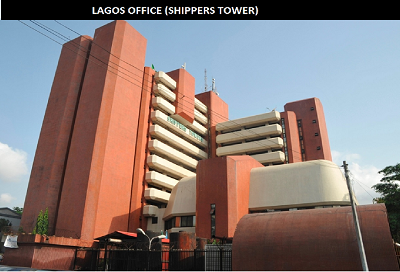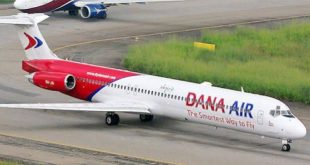
* Shippers’ Council to hold talks with barge operators on cost
* Coronavirus: Govt agencies to observe partial closure

By Kenneth Jukpor
As the Nigerian Shippers’ Council (NSC) leads port stakeholders towards eliminating payment of container deposits, there are indications that a conflict may ensue on who should pay the insurance premium tipped to substitute container deposit, which is an age-long practice in the maritime industry.
While insurance experts posit that the party with the most insurable interest should be responsible for the premium; freight agents, shippers and shipping lines may have to undergo an intellectual battle over who holds the insurable risk, as Shippers’ Council would be tasked with the onus of the mediation.

Container deposit refund has become one of the most problematic issues facing the port sector and freight agents in particular as traffic congestion along port access roads and other issues beyond the practitioners make timely return of the containers impossible, leading to loss of deposits and additional demurrage charges.

Recall that the Executive Secretary of NSC, Mr. Hassan Bello set the elimination of container deposit payments as one of the major goals of the agency for the year 2020.
“In 2020, Shippers’ Council intends to bring insurance to play a key role in the transportation sector. The insurance companies should be able to mitigate the risk. There should be no container deposit because this risk is something that insurance companies can handle. Many people could own their containers while the role of insurance would ensure that this tariff structure is eliminated” Bello said.
Speaking with MMS Plus on the possibility of insurance replacing container deposits, an insurance expert, Mr. Adu Gbolahan said, “We have to look out for the financial benefits and who actually bears this risk. Insurance has to do with financial benefit. Where there is no financial benefit, insurance doesn’t have a role to play. If there is money attached to the empty containers and it is needed by the shipper, the shipper can ensure that there is insurance so that he or she can recoup his or her money peradventure anything happens to the container”
“However, as the owners of the empty containers, the shipping lines have the insurable interest so they have to do the insurance,” Gbolahan who works with FBL Insurance Brokers added.
Meanwhile, the Director, Consumer Affairs, NSC, Chief Cajetan Agu, revealed that Shippers’ Council is concluding plans to have an engagement with shippers, freight forwarders and shipping companies as part of efforts to introduce insurance and stop container deposits.
“It would be an all-inclusive arrangement between the operators involved such as the freight forwarders, shipping lines, shippers and the insurance companies would also have to be part of it. The discussion would be centered on how empty containers would be returned without the container deposits. What is the guarantee to shipping companies that if there is any loss there would be claims or compensation? It is at that point that we have to decide who pays the insurance?There must be a premium and somebody must have to pay for it”, Agu said.
Also speaking on the issue, the President of Association of Nigeria Licensed Customs Agents (ANLCA) Mr. Tony Iju Nwabunike said, “I think it is high time we stopped the payment of container deposit because freight forwarders have lost billions of naira”
According to him, the problem is further compounded by the fact that the shipping lines are mostly foreigners with no consideration on Nigerian interest.
“There is an agreement on the reverse side of the bill of lading that isn’t binding because the document can’t be issued until the vessels sail. The documents are issued on midstream so this is a trick because the shipping lines use to hide this classified information. If you have the information on time, you would be able to decide if you would use the shipping lines services or not. It is something freight forwarders, shipping lines and Shippers’ Council have to sit together to deliberate on”, he added.
Economic experts have also tipped the substitution of container deposits for insurance to lead to massive job opportunities for indigenous insurance companies.
Meanwhile, Shippers’ Council’s bid to attain well-structured rates for transport services to enable shipping stakeholders in their business plans and economic decision making, has been further complicated with varying prices for barge operations.
Barge operations emerged a viable intervention for cargo evacuation at the ports following the road traffic menace as 300,000TEUs of containers were moved by barges in 2019, however, the cost remains unregulated.
Speaking with MMS Plus newspaper during an exclusive chat last week, the President of Barge Operators Association of Nigeria (BOAN) Mr. Edeme Kelikume lamented that the absence of requisite infrastructure meant that barge operators in the country have to provide their services at various cost parameters.
His words: “Cost regulation is a very sensitive matter. Where you don’t have the right infrastructure in place, people provide their services at various cost parameters. It becomes more difficult for you to impose a particular cost on any operator. That is why I believe it would be very difficult to achieve cost regulation. However, operational regulation is very important just as guidelines, Limited License Agreements (LLA) and Key Performance Indicators (KPI) are also essential. The cost would be determined by the market at the end of the day. If your service is too expensive people would leave you alone.”
“It is like saying trucks should have upper limit and lower limits or shipping lines should do same. Shipping lines are a bit more coordinated because it is a global community. For local operators, that structure is just not there and at different times of the year you could have varying rates because of the situation in the country,” he posited.
However, the NSC Consumer Affairs Director, Agu argued that barge operations was an additional cost to shipping ,hence, subject to regulation by the Council to protect the economic interest of the service users.
“In no distant time, NSC will meet barge operators to discuss the cost element and harmonize their operations. We want to ensure that their services don’t become an additional fiscal burden on the port sector,” Agu said.
He observed that the cost negotiation would only be based on upper limit so that people can compete downwards.
“The essence of having that upper limit would be to ensure that barge operators can’t charge more than that but they can charge lower so that there would be competition” the NSC Director said.
Maritime stakeholders, however, have lamented that there are too many entrants into barge operations which led to sharp practices as well as the utilization of unapproved locations as jetties for such operations.
When contacted on this, the ANLCA President, Nwabunike said, “Freight forwarders need to have a robust discourse with these barge operators. The recent joint press conference ANLCA had with BOAN was the first engagement we have had. We are getting closer and we have scheduled another meeting the association. Subsequently, we would meet with Shippers’ Council (NSC), National Inland Waterways Authority (NIWA) and Nigerian Ports Authority (NPA) to discuss the issue of cost.”
In another development, economic activities in Nigeria could be further dampened this week with the proposed partial closure of government agencies and the directive to limit social gatherings to a maximum of fifty persons.
Although these developments seem noble, it has left several questions unanswered on the actual role of the government in combating the menace.
While nations in other climes have made significant efforts to provide basic necessities for citizens to support the stay home directive, Nigerian government has only reduced pump price of Premium Motor Spirit (PMS) by N20, but this is yet to reflect at the retail stations.
The argument by industry observers is how does the reduction of social gatherings to group of fifties eliminate the chances of spreading the virus when the number of coronavirus infected persons in each group of fifty can’t be verified or quantified?
The fears emanating from the pandemic has already led to suspension of legislative proceedings at both chambers, postponement of academic activities across the education sector. Religious and social gatherings have also been banned in Lagos State.
In the maritime industry, the inauguration of the executive management of Nigerian Maritime Administration and Safety Agency (NIMASA) and NPA in Abuja last week was postponed as a result of the coronavirus.
 MMS PLUS NG – Maritime, Aviation, Business, Oil and Gas News Online Newspaper with coverage in Maritime, Oil and Gas, Aviation, Power and Energy as well as Financial News
MMS PLUS NG – Maritime, Aviation, Business, Oil and Gas News Online Newspaper with coverage in Maritime, Oil and Gas, Aviation, Power and Energy as well as Financial News









